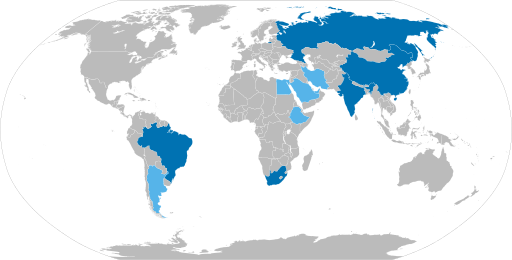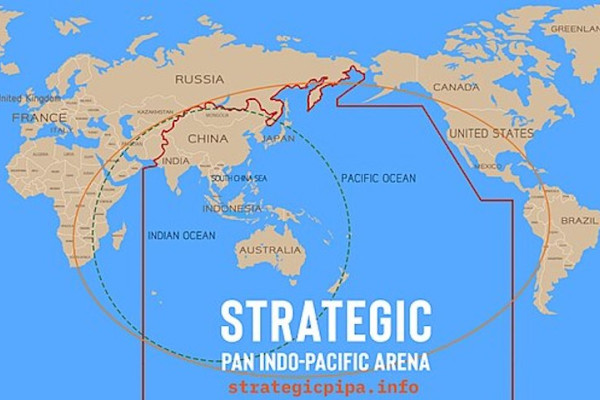
The Indo-Pacific will be the region where world peace and security will be determined in the first half of the 21st century. Dr Rakisits will address the major geo-political fault lines which will be critical in this process. He will also discuss the bilateral and multilateral security, economic, trade structures and arrangements which exist to deal and manage the many challenges the Indo-Pacific will be confronted with in the near future.
Dr. Claude Rakisits is a Visiting Fellow at the Centre for Security, Diplomacy and Strategy (CSDS) at the VUB. He is an Honorary Associate Professor in the Department of International Relations at the Australian National University. His principal academic interest is South Asia. Before going into academia some 20 years ago, he had worked in the Australian public sector in the areas of defence, strategy, foreign affairs and intelligence. He has taught international relations and diplomacy in Australia, US, Canada and Switzerland.
Illustration: Joshuvan, CC BY-SA 4.0 via Wikimedia Commons
Our lecturer was Dr. Claude Rakisits, who has made a very impressive list of achievements along his professional career. At present he is a Visiting Fellow at the Centre for Security, Diplomacy and Strategy at the VUB. He is also an Honorary Associate Professor in the Department of International Relations at the Australian National University. His principal academic interest is South Asia.
His statement “The Indo-Pacific region will be the region where world peace and security will be determined in the first half of the 21st century” set the tone for the whole presentation, which was accompanied by a number of slides.
For our members, the slides were especially useful because they helped us to understand the relationships between the countries of the region and their alliances and institutions, what obstacles they encounter on the way to achieving their goals, and their aspirations.
Dr. Rakisits explained that the name Indo-Pacific region has replaced the former term Asia Pacific, which was smaller territorially and notably did not include India. China has objected to the new name for its region, but to no avail. There are strategic reasons for the name change as seen from the United States. They want to enlist India into the circle of countries on China’s borders with which they have agreements to contain China. This reflects the strategic tilt of US foreign policy away from Europe to focus on China’s global challenge to US global dominance.
The Indo-Pacific is a big chunk of the globe where there is a tug of war between the two biggest regional powers, India and China. India wants to stay neutral on global affairs, but this becomes increasingly difficult.
Our speaker described the current situation and evolving trends in the area of the world where China dominates. Among our lecturer’s slides was one showing the projected economic growth of major world powers until 2030. By 2030 economically China will be bigger in every dimension than the USA, to say nothing about the EU countries. But China is also vulnerable. For example, 60% of global crude oil trade passes through the channels next to China.
One very important slide the lecturer showed is how China has expanded its capabilities in the seas around it, by building artificial islands and other means to push back the US naval presence from the first line of islands to a second line of islands further out. As it is building its ocean going navy, China is clearly intending to dominate the sea around it at the expense of the other major island countries in the neighbourhood, such as Indonesia and the Philippines.
Our lecturer told us about the several US initiated effects to push back against Chinese regional ambitions. It has created AUKUS, a defence organization embracing Australia, the USA and Britain.
Following its creation in 2021, the first thing AUKUS did was to oversee the signing of a contract between England and Australia to build eight nuclear submarines, starting in the early 2030s. Originally a contract for new submarine construction had been signed between France and Australia, but with the help of the US the contract was redirected to Australia. It will bring with it a lot of money and a lot of jobs. The first planned delivery of the submarines is scheduled for 2043.
China concentrates its interests in its immediate neighbourhood. Thanks to their close ties with Pakistan, the Chinese hope to build a naval base there and to create a China-Pakistan corridor linking two oceans.

A few words about BRICS, the organization which had its annual gathering in South Africa at the end of August. It has become a very important association, but only 10% of their trade goes between their members. China, which is a founder of this club, wants to use it to replace the present global trading system. The Americans are building cooperation with those countries in the region which feel threatened by the Chinese.
In Asia there are many unresolved conflicts. There are terrorists in Afghanistan and in Cashmere. There are border disputes between India and China that lead to military clashes from time to time. There is the still unresolved war between North and South Korea. Taiwan is a core issue for China. China is building a lot of military bases in the sea without calling them that. Some of these installations have facilities to accommodate up to 10.000 people. And they have very sophisticated modern weapons.
Finally, Dr. Rakisits gave us an overview of major platforms of global governance where China plays a big role. They are BRICS, the G20 and the Shanghai Cooperation Organization. We are now in the state of transition. South Asian countries have a problem deciding where and with whom to join. Still, they prefer the USA, but the USA is becoming weaker, and they worry that it can lose power. They worry about some small incident which can lead to a full scale war.
On this cheerful note the lecture came to an end.
Illustration of BRICS in 2024 from the Public domain via WikiMedia Commons



